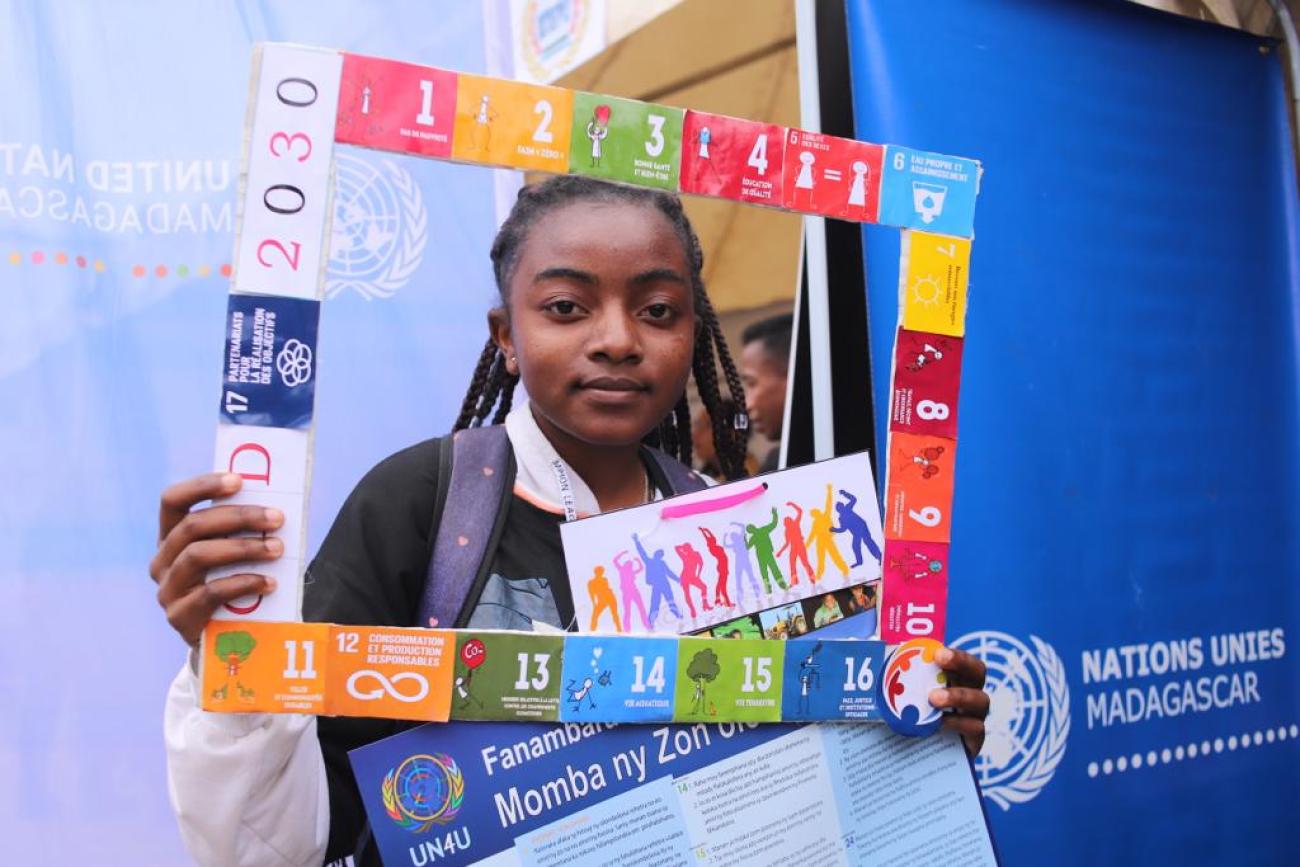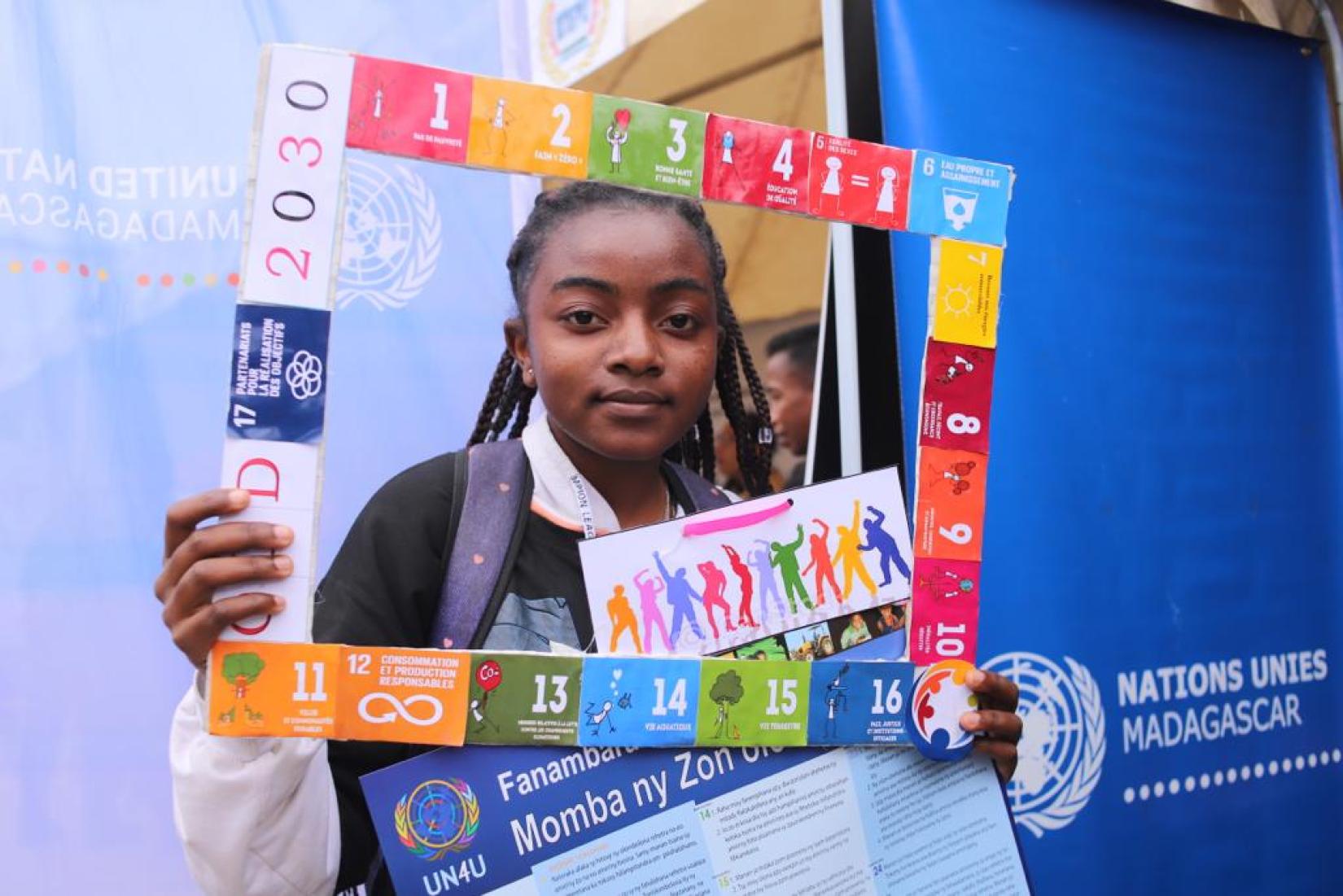MADAGASCAR FOCUSES ON POLICY COHERENCE FOR ACCELERATING THE SDGS

The national commitment of Madagascar at the 2023 SDG Summit to be held on September 18-19 in New York.
The national commitment of Madagascar at the 2023 SDG Summit to be held on September 18-19 in New York points to a paradigm shift centered around policy coherence and strengthened coordination to ensure “a renewed impetus and accelerated actions to reach the SDGs” in the country. It is the result of a long journey that has involved the Government, national development actors and the UN System in Madagascar.
Since joining the 2030 Agenda for Sustainable Development in 2015, Madagascar has continued to dedicate itself to achieving the SDGs, amongst other things, by implementing national plans, policies, and strategies, setting up coordination and monitoring structures, carrying out Voluntary National Reviews (in 2016 and 2021), and working on the prioritization and localization of the SDGs.
Despite these efforts, Madagascar, like most developing countries, will not achieve the SDGs by 2030. Among the main causes, there are the recent crises, the extremely high exposure and vulnerability to recurrent natural and non-natural hazards and climate change, the structural lack of financial and technical resources, as well as weak coherence of public policies and weak coordination amongst development actors.
Poverty, malnutrition, food insecurity, rising inequalities and exclusions (to health, education, WASH, energy, digital opportunities, decent employment, prosperity, etc.), to just name a few, affect large shares of the population. This situation calls for a paradigm shift able to trigger an economic transition towards a more productive, competitive, inclusive, and sustainable model, and a social transition, leading to including everyone, in particular women, youth, and all the people left behind, in economic, social, political, cultural life. Two transitions through which Madagascar will realize a just transition towards sustainability and inclusion for today’s and future generations.
Acknowledging the interconnected, and hence systemic, nature of its development challenges, together with the scarcity of (public) resources, the renewed commitment of Madagascar reflects (and builds onto) the rationale of UN Secretary General’s “Our common Agenda” and of the UN High Impact Initiatives.
Grounded on system thinking, this rationale considers that in a system of (non-linear) causal linkages with positive and negative feedback loops, it is illusory to look for a silver bullet solution that will spread a multiplier effect overall around the system. But it is similarly difficult and costly to work on a mix of often isolated, sectoral actions tackling different system components (under the responsibility of different ministries). Rather, there is a need to work on the linkages (and the loops) liaising selected catalytic components and ensure high levels of (policy) coherence. Eventually, focusing on policy coherence calls for improving coordination within the government and with partners and development actors.
Along these lines, the national commitment of Madagascar at the 2023 SDG Summit reflects a paradigm shift centered around sustainable development policy coherence and strengthened coordination, in line with SDG 17 (target 17.14). It will be applied, starting within the Government, on four main areas, i.e. (i) Infrastructures (Energy, Digital, Water, Transport and regional integration); (ii) Education, Decent Employment, Social Protection, and Empowerment of youth, women, and people left behind; (iii) Environment, Climate, and Food Systems; and (iv) Good governance.

It is to note, that the new national commitment of Madagascar for the realization of the 2030 Agenda is the result of a long journey that has involved the UN System, the Government and national development actors in Madagascar. System thinking and foresight analysis have been used initially for the UN Common Country Analysis. They have subsequently underpinned the joint process leading to the new UN Cooperation Framework 2024-2028. The resulting mindset shift towards a systemic and holistic vision of sustainable development has progressively spread out and influenced the government, making straightforward the step to a call for improved policy coherence and strengthened coordination.


















